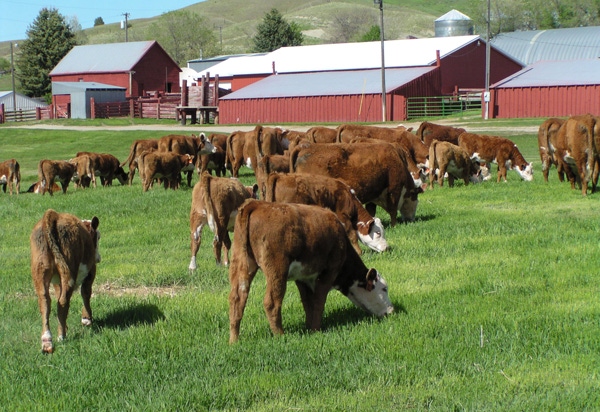Scratching My Head Over “Frack-Free” Beef
I’m familiar with a few different certifications, but this was a new one to me.
June 22, 2012

A couple of months back, I received the following letter from a writer looking for a source of “frack-free” beef. Here’s most of the letter:
“I keep reading that toxic flowback and production fluids used in natural gas hydro-fracturing horizontal drilling wells are leaking in Wyoming, Pennsylvania and Louisiana where they are making people sick and killing livestock that drink the salty water.
“This type of drilling is occurring in 34 states. I don’t want to take a chance with my children’s and my life eating cows from these states. My family is not eating any more hamburgers or steaks until we find out what state our meat comes from and that it’s certified Frack-Free.”
I’m familiar with a few different certifications, but this was a new one to me. I advised him that if this indeed was an issue for him, he should find a local producer and buy his beef direct.
While environmental groups claim otherwise, the Environmental Protection Agency says there are no reported cases of groundwater contamination due to hydraulic fracturing, or fracking, as it’s called. It’s a process of drilling for natural gas and oil that involves pumping a mixture (95% water, 9.5% sand, plus other components) under high pressure deep into the ground to create cracks in rock to release the gas into wells that have been built for collection. Over the years, the technology has been used safely and successfully in over one million wells, the industry says. You can watch a video on the process at www.what-is-fracking.com.
I think the letter writer’s sentiments, however, are illustrative of how green groups demagogue technology for their own financial interests (fundraising) and to further an anti-fossil fuel agenda. The truth is many environmental groups don’t want domestic energy independence unless it’s based on green technologies, which remain extremely unreliable and inefficient.
This issue is important because proven technologies, such as fracking, have huge implications for America’s energy future. The U.S. Energy Information Administration reports that more than 750 trillion cu. ft. of technically recoverable shale gas, and 24 billion barrels of technically recoverable shale oil, exist in discovered shale plays in this country. Responsible development offers tremendous opportunities in job creation, economic growth and energy security for generations to come.
This issue is important to U.S. beef producers because it’s important to every American. Higher-priced energy leads to higher-priced goods and services. That not only raises production costs, but suppresses demand for a lot of goods and services, not the least of which is beef.
About the Author(s)
You May Also Like


.png?width=300&auto=webp&quality=80&disable=upscale)
